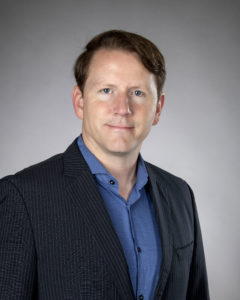Ph.D. in Management

Why a PhD?
Earning a PhD in Management would allow you to become a professor in the management department of a top business school. There you could pursue a research agenda that you’re passionate about and that can improve employee thriving and organizational effectiveness. You could then pass your knowledge on to the next generation of business leaders in the classroom. As a career direction, the life of a professor in a top business school is very purposeful and surprisingly lucrative–with unparalleled flexibility and job security.
Why Notre Dame?
Mendoza has now admitted two cohorts of students into its PhD in Management program, and is in the midst of recruiting its third cohort. It’s an exciting and historic time, and there are several reasons why Notre Dame is a perfect place to pursue your PhD in Management.

Faculty Quality
The M&O faculty are extremely accomplished, with work showcased in journals like Administrative Science Quarterly, Academy of Management Journal, Academy of Management Review, Strategic Management Journal, Organization Science, Organizational Behavior & Human Decision Processes, Management Science, Journal of Personality & Social Psychology, Psychological Science, and Journal of Applied Psychology.

Institutional Prestige
Notre Dame ranks 20th in US News as a university, with Mendoza ranking 13th in US News for undergrads and 30th for MBAs. A PhD from Mendoza therefore sets you up for success at both elite private schools and flagship state universities.

Passion Focused
M&O faculty study a number of topics relevant to Mendoza's Grow the Good in Business mission, including social responsibility, justice, activism, diversity and inclusion, sustainability, ethics, reputation, trust, resilience, humility, and meaning. But we encourage PhD students to follow their own passions--and we'll help you develop lead-authored work on whatever you're passionate about.

Editorial Experience
M&O faculty include former Editors of top journals, along with current and former Associate Editors. We also serve on the Editorial Boards of virtually all of our top journals. You'll therefore learn the craft of research from the people who have shaped the publishing process.

Methodological Diversity
M&O faculty use a variety of methods in their research, including experimental, archival, survey, qualitative, and meta-analytic approaches. That diversity will allow you to build a variety of skills into your methods toolkit.

Placement Potential
Although our PhD program is fairly new, our faculty have significant experience placing PhD students in top business schools--whether in earlier faculty positions or through our former postdoctoral program. Collectively, our faculty have already placed 13 students at UT-Dallas Top 100 business schools.
Concentrations
Our program has two concentrations:
- Organizational Behavior (OB)
- Our OB concentration focuses on understanding and improving employee attitudes, emotions, cognitions, performance, and well-being–including the effects of relationships, leadership, and the work context.
- Strategy & Entrepreneurship (S&E)
- The Strategy facet of our S&E concentration focuses on strategic management and strategic leadership–how the business decisions of CEOs, top executives, and boards of directors influence firms and their competitive environments.
- The Entrepreneurship facet of our S&E concentration focuses on how founder characteristics and experiences impact venture funding and success. It also focuses on how startups can become tools for social change.
- Organizational Behavior faculty
- Jason Colquitt (work meaning, trust, justice, identity)
- Mike Crant (proactivity, voice, personality, creativity)
- Cindy Muir (Zapata) (diversity, humility, justice, trust)
- Ann Tenbrunsel (ethics, social dilemmas, decision making, negotiation)
- Casher Belinda (interpersonal perception, work relationships, emotions)
- Dorian Boncoeur (emotions, well-being, engagement, loneliness)
- Michael Rosenblum (diversity, inequality, political discourse)
- Brittany Solomon (Hall) (personality, political ideology, trust)
- Strategy & Entrepreneurship faculty
- Craig Crossland (executive succession, managerial discretion, multinational differences)
- Dean Shepherd (entrepreneurship, founder resilience, social issues)
- John Busenbark (corporate activism, boards of directors, acquisitions, econometric analytics)
- Michael Mannor (strategic attention, risk taking, corporate social responsibility/purpose)
- Amanda Sharkey – Starting August 2024 – (status, reputation, entrepreneurship)
- Adam Wowak (executive political activism, political ideology, executive compensation)
- Tim Hubbard (corporate reputation, corporate social responsibility, innovation)
- Dana Bement – Starting August 2024 – (boards of directors, sensemaking)
- Joanna Campbell (organizational capabilities, gender issues, corporate greed)
Program Structure
Our program is a five-year, full-time, in-residence program. You’ll learn how to conduct important, rigorous, and interesting research in management by collaborating with our talented faculty. You’ll also learn how to impart that knowledge in the classroom. Click below for a year-by-year breakdown of how the program is structured.
The craft of research is something you learn by doing, so you’ll get involved in research projects right away. Meanwhile, in the classroom, you’ll take both research methods and content seminars. Highlights include Research Methods in Management (taught by Jason Colquitt), Advanced Research Methods in Strategy (taught by John Busenbark), Theory and Research in Organizational Behavior (taught by Cindy Muir), and Theory and Research in Strategy (taught by Adam Wowak).
You’ll continue to move ongoing research projects forward, but will begin pivoting to lead-authored work in the areas that you’re passionate about. In the classroom, you’ll continue to take additional research methods and content seminars–both inside and outside of M&O. Highlights include Topics in Entrepreneurship & Innovation (taught by Dean Shepherd), Topics in Organizational Behavior (taught by Brittany Solomon), Topics in Organization Theory (taught by Tim Hubbard), and Philosophy of Science (taught by Craig Crossland). That training will culminate in your comprehensive exams, which occur the summer after your second year.
With your coursework complete, you’ll focus even more on moving projects forward–both your lead-authored projects and ones where faculty are leading. Much of that attention will be devoted to the review process: submitting manuscripts, handling revisions, and otherwise improving your work. You’ll also teach for the first time, with OB students teaching one section of an undergrad OB course and S&E students teaching one section of an undergrad Strategy or Entrepreneurship course.
As you continue to manage your portfolio of research projects, you’ll turn your attention to your dissertation. What important contributions do you want to make to your unique areas of interest? You’ll also teach for the second time.
You’ll defend your dissertation proposal in early summer before going on the academic job market in the fall. Students tend to accept academic positions in November or December. You’ll then defend your dissertation in the spring, continue to manage your research portfolio, and look forward to life as a professor!
- Organizational Behavior students
- Jefferson McClain (2nd year)
- Claudia Torres (2nd year)
- Alexandra (Alecia) Scott (1st year)
- Strategy & Entrepreneurship students
- Henrique Goncalves (2nd year)
- Sarah Sarjoo (2nd year)
- Muhammad Ammad Amin (1st year)
Contact Me

As the Coordinator for the PhD in Management, I’d be happy to answer any questions you have about the program–or a PhD path more generally. Please email me at jason.colquitt@nd.edu or click on REQUEST INFO. I look forward to corresponding with you!
Our application deadline for Fall 2025 matriculation is December 15th, 2024. The application system will open in September of 2024. You can apply using the APPLY button in the navigation bar and at the top of this page.
Frequently Asked Questions
All students who are admitted to the program will be given a full tuition waiver. So the program is essentially tuition-free. In addition, all PhD students are paid a stipend of $42,000 a year. That stipend serves as compensation for your research activities (and for the teaching you would do in years three and four). Health insurance is also provided for you and your family.
We require either the GRE or the GMAT, and do not grant waivers for that requirement under any circumstances. We have no preference between the two tests. If you’ve previously taken one of those tests, we require a score that is less than five years old. The GRE institution code is 1841 (no department code is necessary).
It’s hard to say, as that is a function of a given application cycle, along with the rest of an applicant’s admissions portfolio. In prior cycles, the applicants who were shortlisted averaged 84th percentile on Verbal and 73rd percentile on Quant.
Yes, if English is not your native language, or if English was not your language of undergrad (or masters) instruction. We accept the TOEFL, IELTS, or Duolingo English Test. If you’ve previously taken one of those tests, we require a score that is less than two years old. The TOEFL institution code is 1841 (no department code is necessary). Notre Dame’s Graduate School lists the following as minimums to apply: TOEFL (80, with 23 Speak), IELTS (7.0), and Duolingo (120). Applicants with scores below those thresholds will not be shortlisted.
The APPLY button will take you to the online application, which goes through Notre Dame’s Graduate School. That application will ask you for your resume, a statement of purpose/intent, three letters of recommendation, and unofficial transcripts of prior degrees.
No. The application will ask which faculty you might like to work with, but that is just to give us a better sense of your interests (and to help decide who will interview you if you get shortlisted). No advanced contact with faculty is expected. Please direct any inquiries to Jason Colquitt rather to individual faculty members.
No. Anyone with a bachelor’s degree can apply. There is no masters requirement. And past applicants have had a wide variety of bachelor’s degrees and undergraduate majors.
Not really. “Pre-doc” programs provide two years of research experience and skill building. The culture of our program is such that we’ll work to instill the skills you’ll need in the first year. If you know that a scholarly path is right for you, why wait two years to get started?
No. This sort of degree is best thought of as a research apprenticeship—where you are learning research skills in collaboration with faculty. That sort of collaboration requires a full-time, five-year, in-residence commitment.
Yes. Like virtually all other PhD programs in Management, the focus of our program is training students to become professors in top business schools. Upon graduation, the expectation is that you’ll become a professor in a Management department at a UT-Dallas Top 50 business school. If you are interested in OB topics with more of an eye toward a consulting or industry path, you might consider PhD programs in industrial/organizational psychology. Those programs offer both academic and applied tracks. This link provides information on several such programs.
No. This is—first and foremost—a research degree. Teaching is part of the degree, as teaching is an important part of a professor’s career. But, if teaching or administration are your main focus, you might do a search for Doctor of Business Administration (DBA) programs, which are sometimes also called Executive Doctorate programs. This link provides information on several such programs.
